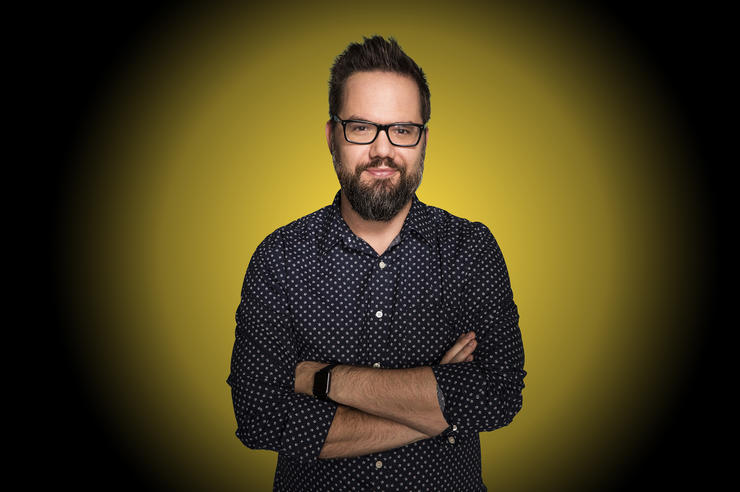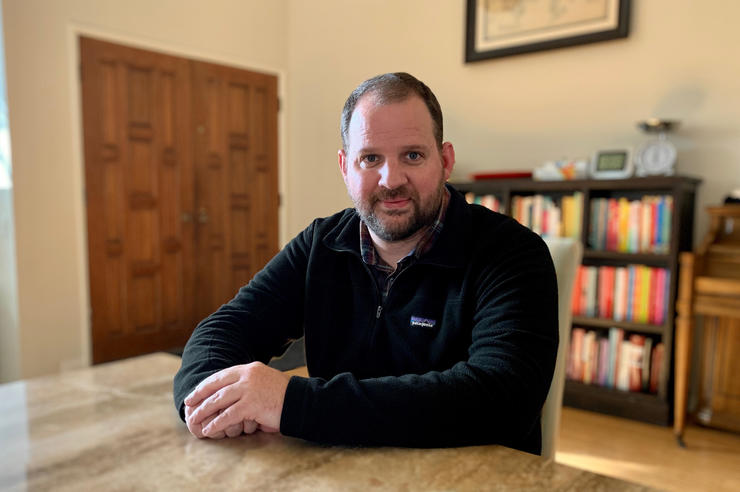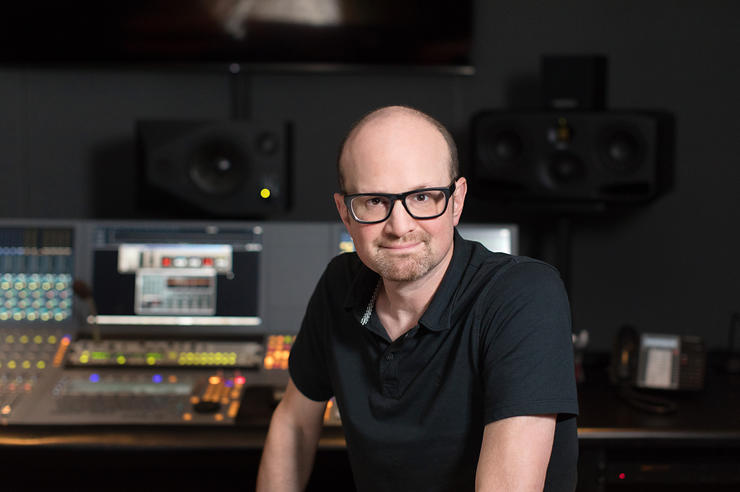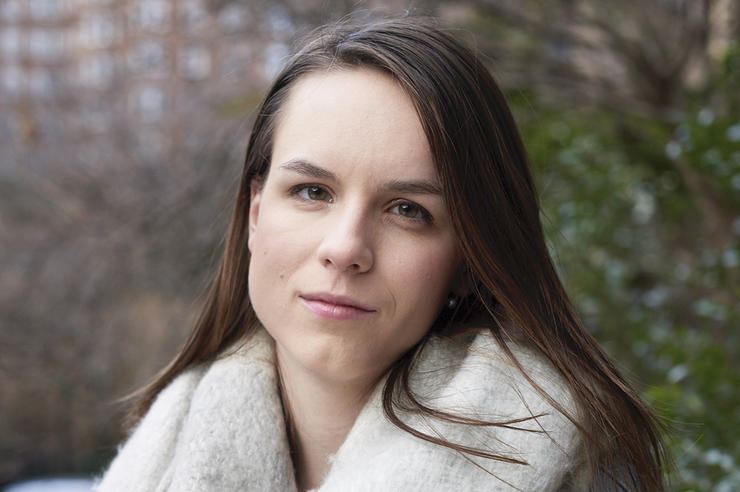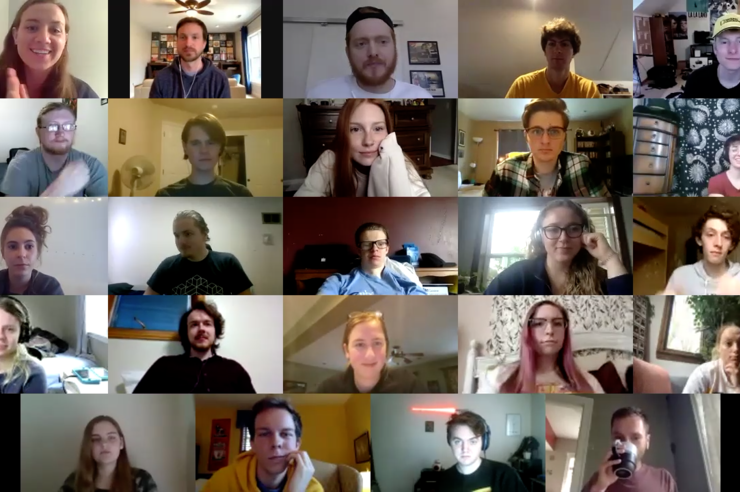Iowa alum is having a devil of a time
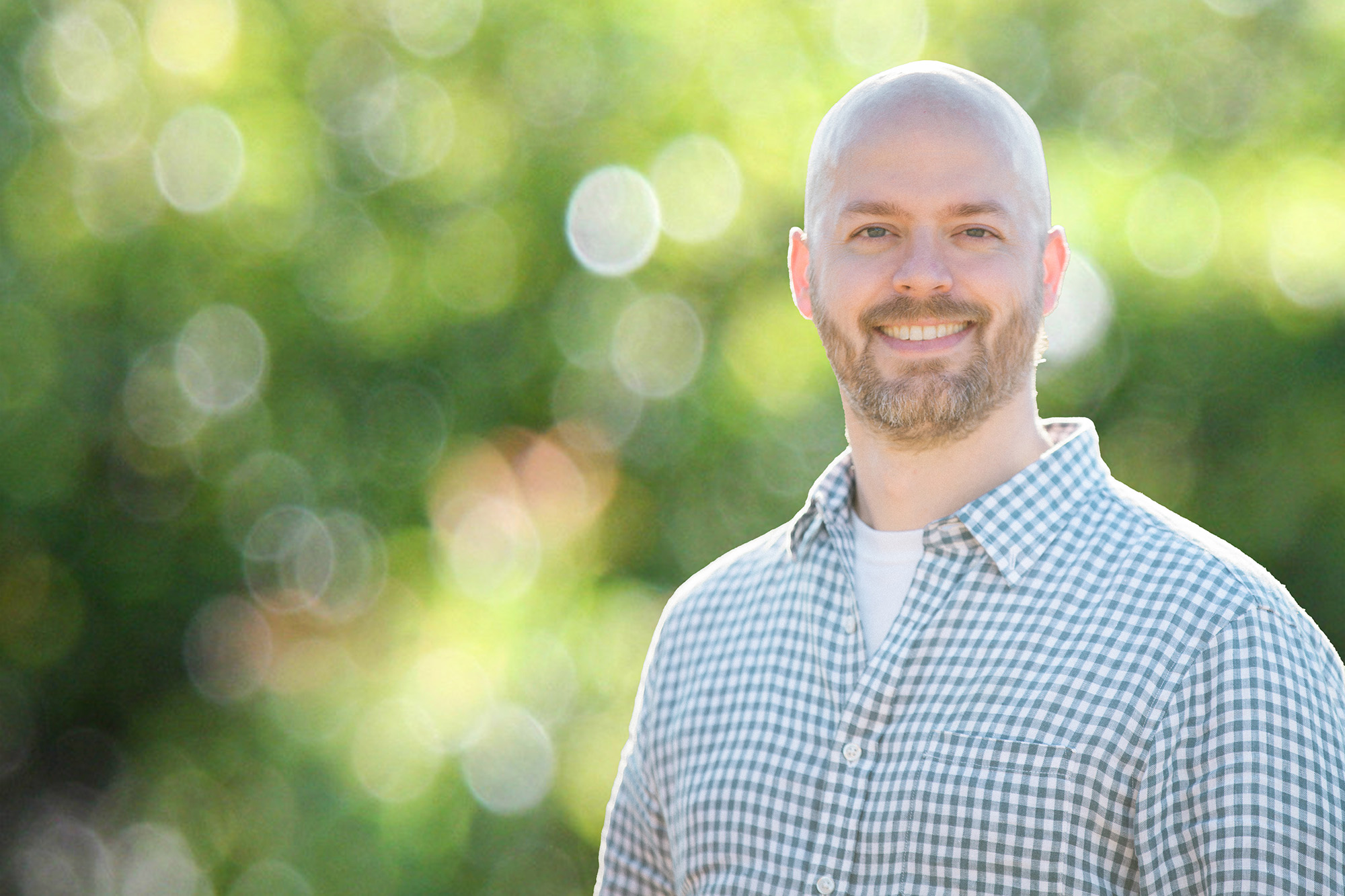
When Joe Henderson heard the pitch for the TV series he now is in charge of, he thought it was dumb: The devil leaves his duties in hell to run a nightclub in Los Angeles and solve crimes on the side.
“I thought it would be terrible unless it was done well. Then I saw the pilot and thought, ‘Wow, what an incredible journey to take viewers on,’” says Joe Henderson, a 2001 University of Iowa graduate who is the co-showrunner on the Netflix series Lucifer. “The concept is simple: If the devil can be redeemed, so can all of us—and it works. It’s part comedy, horror, fantasy, and procedural police drama. It’s a stew of every genre mixed together.”
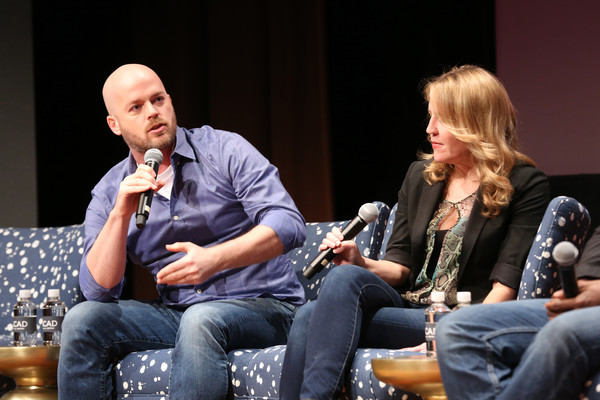
Lucifer showrunner and UI graduate Joe Henderson says the coronavirus pandemic not only shut down production before the fifth season’s finale had been shot, it affects how the writing team is tackling the sixth and final season: “We’re forced to write scenes we know we can shoot safely, so we’re digging more into character development,” he says. “As far as shooting is concerned, we’re seeing what works on other shows and sharing best practices with each other. It’s a moving target, so we have to adapt as we go.”
Henderson was working as a TV writer and producer in Hollywood, with shows like White Collar, Almost Human, and Graceland under his belt, when Warner Bros. Television hired him in 2015 after the writer of the Lucifer pilot left the project. The first half of the show’s fifth season begins streaming Aug. 21; the timing for the second half of the season is undetermined, as the cast and crew had not yet finished work on the season finale when the pandemic halted production. Netflix has renewed it for a sixth and final season.
Henderson says he is proud to be part of the show—one he initially thought wouldn’t work, and one that was canceled by Fox after three seasons but scooped up by Netflix. As one of the two showrunners on Lucifer, he is responsible for story development, production, and postproduction—like a CEO, he says, who reports to the studio and the network. He leads the show’s nine writers and regularly meets with the cast and crew.
“It’s like juggling 10 balls, a chainsaw, and maybe a baby,” he says. “I love it. I get to do a little of everything.”
A typical day includes going though emails to answer production questions and problem solve and then spending as much time with the writers as possible (during the pandemic, that has meant daily Zoom calls). He is on set at the Warner Bros. lot in Burbank, California, to consult with actors on line changes and give direction to costume designers, set designers, and directors. He also is involved in casting decisions.
“At Iowa, I discovered screenplays. I learned more about dialogue and character interactions, which really spoke to my strengths, and I learned how to collaborate with others. I was so inspired by my fellow students in a screenwriting class—a community of people who were pursuing a creative purpose.”
“I love storytelling. I eat and breathe storytelling,” says Henderson, who frequently drifts into other worlds by listening to audio books, reading comics, and enjoying TV shows like What We Do in the Shadows, The Great, and Avatar: The Last Airbender. “I think a mistake writers can make is to stop reading. Reading other people’s work makes you step up and do better with your own writing—and it’s fun and challenging. Entertainment is a living organism. You have to interact with it.”
In fact, watching the animated TV series DuckTales as a child first inspired Henderson to write. Growing up in the suburbs of Chicago, he wrote short stories, Dungeons & Dragons narratives, and even a 1,300-page novel. His family moved to Ankeny, Iowa, when he started high school, and he says it quickly became clear that the best place to explore writing would be at the University of Iowa.
In addition to being the creative lead on the Netflix show Lucifer, Iowa graduate Joe Henderson is the writer of Skyward, a comic book about a young woman navigating life in a low-gravity world. It was nominated for a 2019 Will Eisner Comic Industry Award for Best New Series. Working on each creative outlet, Henderson says, helps spur ideas for the other. He is now working on a second comic book.
“At Iowa, I discovered screenplays. I learned more about dialogue and character interactions, which really spoke to my strengths, and I learned how to collaborate with others,” says Henderson, who majored in psychology, communication studies, and English. “I was so inspired by my fellow students in a screenwriting class—a community of people who were pursuing a creative purpose.”
Henderson also took a TV production class, in which he and his classmates wrote, acted in, and filmed a “big, crazy” musical: “Our teacher let us do anything we wanted. It felt like a tangible thing to make entertainment.”
If you are interested in becoming a filmmaker, editor, camera assistant, screenwriter, producer, or casting agent, the University of Iowa offers degrees in cinema and in screenwriting arts. Students are instructed on the practical skills and knowledge needed in these industries and also learn about history and theory.
The creative collaborations Henderson experienced at Iowa, he says, set him up for success in the television industry, where he works on multiple creative teams.
“My classes made me well-rounded, socially and intellectually. The liberal arts are about communication and how to work with people, and that’s what I do all day,” he says. “One that stands out was a religion class taught by Jay Holstein—he taught his students to think outside the box.”
Henderson encourages all aspiring writers to continue doing what they love, even if it is daunting.
“There is a way to do it professionally. You will work your butt off, but it is worth it,” says Henderson, who moved to Hollywood after graduation and took every assistant job he could—from fetching coffee to answering phones. “I hustled for eight years, but spent the whole time writing. I bet on myself, even during the writers strike when there were no jobs to be found. I partnered with another writer and we got a job as a team. So much in this business is luck mixed with preparation.”
